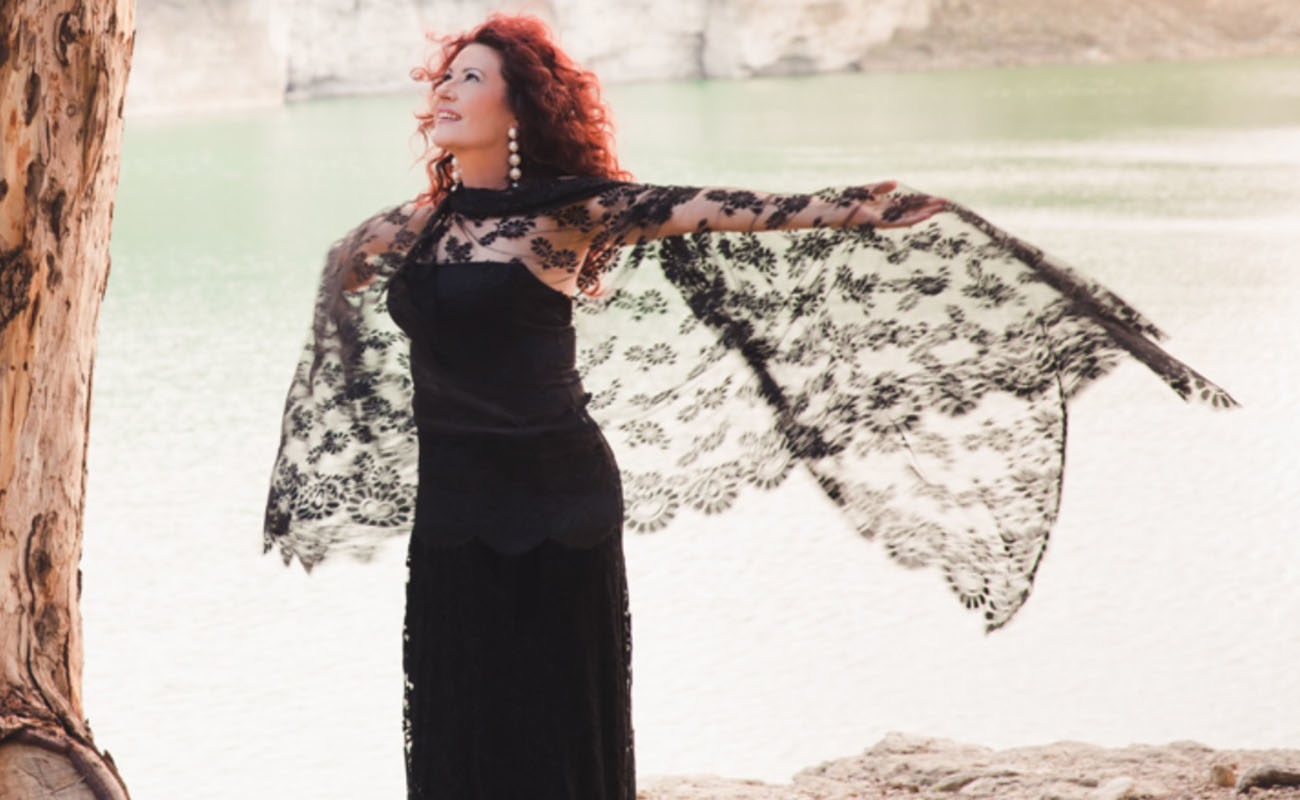Antonia Contreras, cantaora
Antonia Contreras is a lady cantaora who performs traditional cante and who defends an artistic legacy, like that of La Trini de Málaga, for example. She has the flavor of Málaga when she sings, and if we close our eyes when we listen to her we can picture Málaga’s hills and the steep streets of Álora and Tajo de Ronda

I particularly like a cantaora from Málaga, Antonia Contreras. Not just because she sings wonderfully, but because of her elegance and attitude on and off the stages. You know that I’m one of those who think that anyone who sings palos flamencos is not necessarily a cantaora unless they have the right mindset. This is what defines being a cantaor, nothing less. There has to be and eagerness to be a cantaor, to feel flamenco, to accept that being a cantaor implies defending a position before this art, like Chacón, Manolo Caracol, Tomás Pavón or Antonio Mairena did in their days. Anyone can be a singer, but it’s necessary to have that specific mindset to be a cantaor. I don’t understand some artists who say that they are more than a cantaor, as if being a cantaor were a little thing. They say so because sometimes they get off the tracks trying to prove they’re able to create new things. Create what, exactly?
Antonia Contreras is a lady cantaora who performs traditional cante and who defends an artistic legacy, like that of La Trini de Málaga, for example. Interpreting the traditional performers of cante is something very important, and I see this as the best way to honor them. Blatant imitation is something else, but Antonia doesn’t imitate anyone, she sings in the traditional way and puts her personal imprint in her cantes.
This can be attested in her latest album, La voz vivida. Yet, there is something else I particularly like about this great artist: her discretion: Antonia doesn’t do things just to be popular or to show off, but she limits herself to sing where she’s hired and to elevate the name of Málaga, the beautiful and very flamenca province she’s from. Antonia has the flavor of Málaga when she sings, and if we close our eyes when we listen to her, we can picture Málaga’s hills and the steep streets of Álora and Tajo de Ronda. Antonio Mairena, the wisest of the wise, believed that flamenco purity was the ability to convey the flavor of the landscape.
Antonia is just that: the flavor of Málaga’s landscape, and even its scent. Nowadays she’s the best cantaora of her generation, a maestra in the strict sense of the word. And we must always support the maestras if we don’t want cante jondo to end up as a matter of pop singers claiming to be cantaoras. Because, I say it again, a cantaora is not just anyone, but someone with the gift and the mindset.
Translated by P. Young




